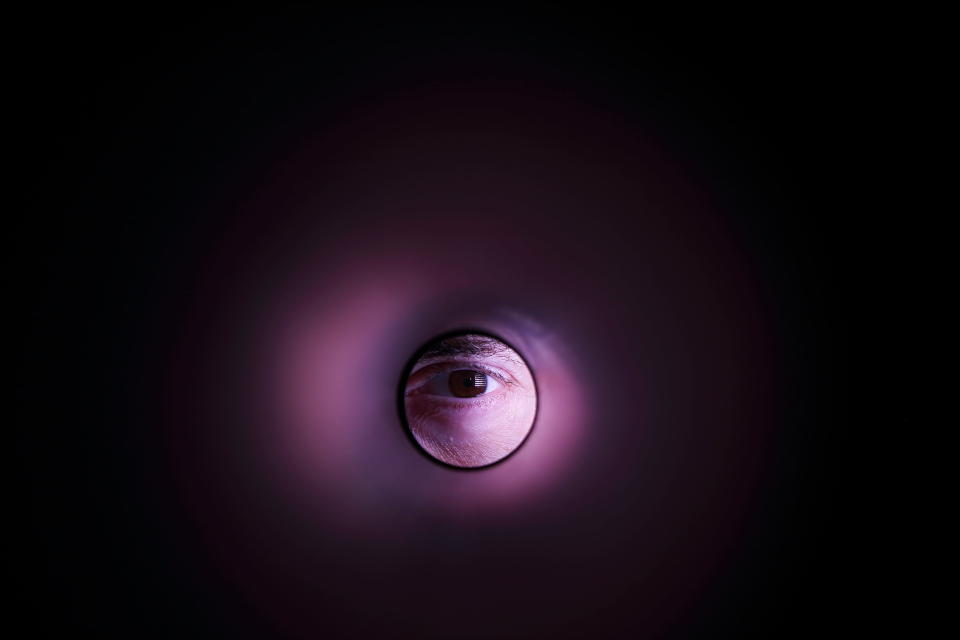Campus Voyeurism: I went public to get the wheels turning - molest victim
Incidents of voyeurism on campus have come into the spotlight recently, in the wake of the National University of Singapore saga after undergraduate Monica Baey spoke publicly about her traumatic experience as a victim.
Universities in Singapore have released statements to say that they are taking the issue very seriously and have implemented measures to tackle it.
In Parliament and on social media, Education Minister Ong Ye Kung stressed the need for firm measures by universities to improve campus safety and support for victims of sexual misconduct.
In this three-part series on campus voyeurism, Yahoo News Singapore looks at the issue from the perspective of undergraduates who are studying in Singapore.

By Isabelle Liew
SINGAPORE — In January this year, Melanie Bickham received an Instagram message from a former junior college classmate. The latter had been filmed by a Peeping Tom while having a shower at her university hostel in November, and was running into dead ends with the police and the National University of Singapore (NUS).
The classmate in question was Monica Baey, now 23. Perpetrator Nicholas Lim, 23, had received a conditional warning from the police, been suspended for one semester, and had been asked to write a letter of apology.
Bickham, a third-year social science student from Singapore Management University (SMU), had taken to Instagram after she herself had been molested in November 2017 by Briton Coker Gyles Akinkumni Jagdeesh following a private party at Sentosa Cove. While initially in shock, she had made a police report and gone public the following month when she thought her case didn’t seem to be going anywhere.
“If anyone has had bad experiences with this guy, or heard of any bad (things) that he’s done, please DM me,” she wrote on her Instagram stories. The post resulted in a stream of responses from other women that she provided to the police, hoping it would strengthen her case against the British male model, then 21.
As it turned out, none of the responses could actually be used for legal reasons, but in February this year, Gyles was sentenced to 15 months’ probation.
This entailed remaining indoors from 10pm to 6am each day, and performing 100 hours of community service.
“When Monica reached out to me, I commended her for reporting it and I helped walk her through the process. I told her to bug her investigating officers (for updates), and keep fighting for it and not to give up,” Bickham said, adding that over a year had passed before her own case had been heard by a judge.
Baey, who has confirmed this exchange, finally decided to take her own troubles public on April 18, and stirred enough public support to force a review of the approach universities – including NUS – take to sexual crimes.
Sexual assault victims are often in shock, and find themselves at a loss as to what to do, Bickham added. In her case, it was her brother that convinced her that she had, in fact, been a victim of sexual misconduct, and to go to the police. She hopes the public attention that Baey has sparked will force tangible action, and that tertiary institutions will put “energy and effort” into creating a system that better supports victims.
“They must address such incidents publicly - make known what punishments have been meted out and what support victims have been provided, just to let students have peace of mind.”
In parliament last week, Education Minister Ong Ye Kung spoke out against “trial by media, doxxing, and resorting to mob justice” and stressed the need to “respect due process”. However, he acknowledged that Baey’s intention was to “ensure fairness for both the perpetrator and the victim in future cases.”
In an Instagram post on 1 May, Baey herself called for a stop to the online harassment of Lim.
Bickham said her own decision to go public was not fuelled by revenge. “I got what I wanted, which was to deter the offender from reoffending, and I wanted to make it known what had happened to me. Punishment shouldn’t go under the radar.”
“It’s not about fear mongering, it’s about raising awareness that these things happen, that you’re not alone if you’re a victim, and it’s also a form of deterrence for people who are thinking of offending or have offended, to let them know that they’re not going to get away with this.”
Read the second story in this series here: Campus Voyeurism: How can we feel safer? - students
And the third: Campus Voyeurism: Better reporting, support systems needed - students
Related stories
NUS Review Committee proposes tougher sanctions for sexual misconduct offences
Over 300 NUS students issue letter to criticise town hall meeting on sexual harassment
NUS hears students' grievances on sexual misconduct issue, promises immediate change
Ong Ye Kung concerned over ‘manifestly inadequate’ penalties in NUS sexual misconduct case


